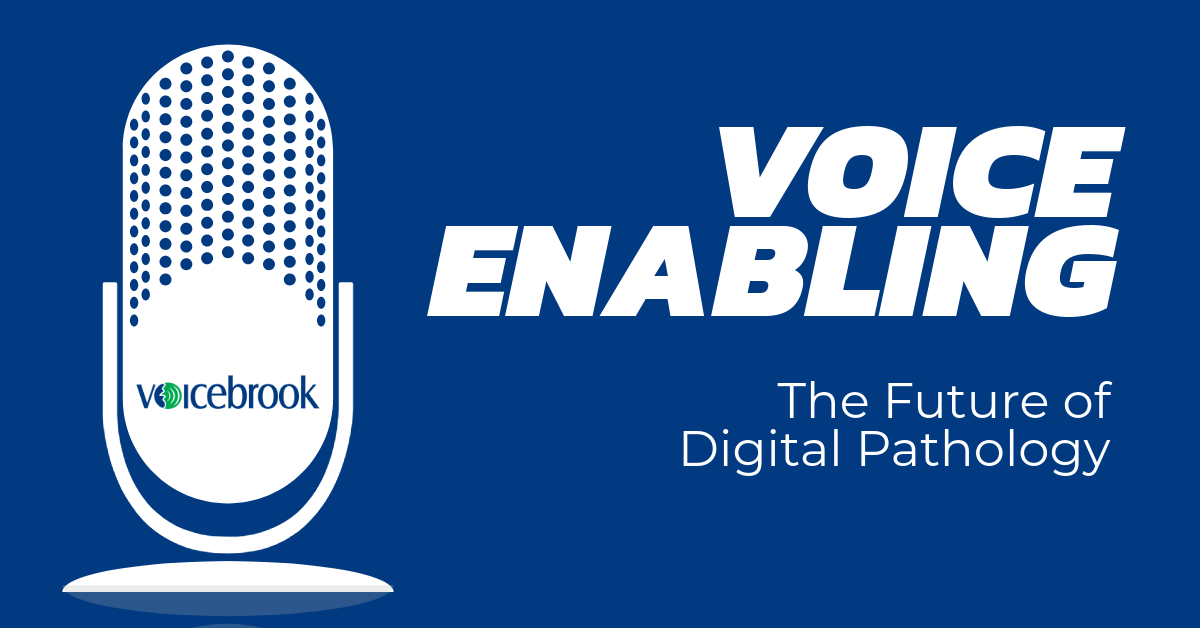Resident Training: Get Set for Success with Voicebrook
At pathology labs across the country, summer marks a season of change. From June through August, a new cohort of residents and fellows arrives, ready...
.jpg)
As Match Day concluded in March, more than 40,000 medical students across the country received their long-awaited assignments to the academic hospitals they will be attending for their residency programs. Here, they'll take the first step in their medical careers and train in the specialty of their choice for the next three (or more) years.
But matching has been a little bittersweet for these particular students, as most universities canceled their celebrations and ceremonies, or held them virtually thanks to COVID-19. It's a stark reminder to these residents that gradually getting their feet wet is unlikely in their upcoming positions. Instead, they'll learn their craft in the midst of a medical crisis.
There has always been a need for more medical professionals to serve the ever-growing population. But now, faced with the COVID-19 pandemic that has plagued us globally, these medical residents are priceless. This year's crop of residents enter the field of healthcare at an unprecedented time that many of us only thought happened in movies, not in real life. Most of us didn't anticipate something like this in our lifetime, thanks to all the medical and technological advancements we enjoy. In light of COVID-19, residents will be even more essential members of the team, playing important roles as those teams provide critical care.

Image credit: The University of Tennessee Graduate School of Medicine via https://gsm.utmck.edu/pathology/main.cfm
Across America, the medical workforce is buckling up, expecting a bumpy ride with COVID-19. As excited as this new class of residents surely must feel about their acceptance into their teaching programs of choice, imagine the anxiety they might be experiencing as well. The faculty members who are responsible for these residents might be experiencing similar emotions. Amidst the chaos and stress of working in healthcare during this pandemic, these folks must also mold residents into the experts of tomorrow, by providing on-the-job training, mentorship, and consistent follow-up sessions.
At Voicebrook, we consider the end of June through the first week of August to be “Resident Season” where we provide training to hundreds of residents and fellows on our VoiceOver software. Trainees are provided dynamic templates and the ability to use their voice to quickly and easily navigate clinical systems, in order to transcribe their findings and diagnoses and create patient reports. This training is essential for new users to ensure they can achieve full functionality with the reporting tool.
Prior to the COVID-19 crisis, Voicebrook had already started to send out promotional training packages to our clients so they could start scheduling their resident training sessions and fast-track the onboarding process. Fortunately, we are equipped to do this training in spite of COVID-19. We can do most resident training remotely, which makes it easy to accommodate client schedules and keep everyone safe while we continue social distancing to stop the spread of the virus.
Generally, we schedule trainings over the summer in June, July, and August. We know that getting residents up and running requires training on facility protocols, lab equipment, computer systems, grossing… and the list goes on. Although we can't help with all of the items on your to-do list, we can make sure that new residents have the training they need to use VoiceOver effectively.
VoiceOver®has had a huge positive impact on our training program for the resident, because now the residents can themselves dictate reports into the LIS before they even come to the pathologists. When they sit with their attending pathologist to look at the slides, they can now see what changes the pathologist is making to the report in real time, and they can be part of the entire process, from dictation of gross descriptions to sign-out." -Dr. Meenakshi Singh, Vice Chair, Anatomic Pathology, Stony Brook University Medical Center
Things are likely to be hectic for the next few months, but laboratories must still get critical reports out in a timely manner. Even with the COVID-19 concerns, your work will continue, with patients and colleagues counting on you for reports. Voicebrook is glad we can continue do our part to support you, helping to train your staff and helping patients get results.
If you have any questions about our VoiceOver training sessions, email support@voicebrook.com to talk with a Voicebrook team member. We are here for you and ready to work together to ensure the safety and best possible outcomes for everyone. Stay safe!

.png)
At pathology labs across the country, summer marks a season of change. From June through August, a new cohort of residents and fellows arrives, ready...

The landscape of anatomic and digital pathology is rapidly evolving, with many vendors shifting toward modern, browser-based architectures. At...

CAP22. We're just days away from the College of American Pathologists (CAP) Annual Meeting! CAP22 kicks off on October 8 in New Orleans and runs...